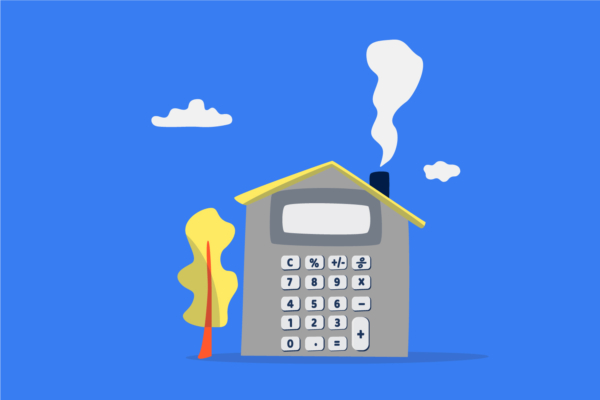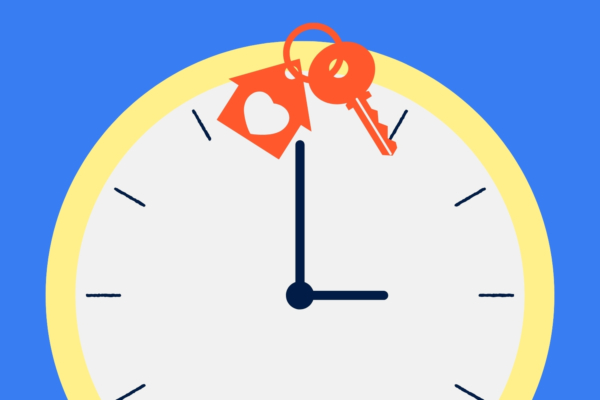
Buying a House in 2021? Here's Everything You Need to Know About Your Credit Score
If you’re looking to buy a house in 2021, congratulations! Whether it’s your first home or your forever home, the purchase is an exciting one. There’s a lot of planning and preparation that goes into homebuying, however. To start, you’ll need to have a good pulse on your financial situation, including your credit score.
Your credit score is not as shrouded in mystery as you may think. In this article, we’ll cover everything you need to know about this three-digit number when purchasing your own piece of real estate. We’ll break down why your credit score is important, what number lenders like to see, and how to raise it if it’s not quite where it needs to be.
Why You Need to Know Your Credit Score to Buy a House in 2021
Why does your credit score matter so much when taking out a mortgage?
To put it simply, a credit score is a number between 350-850 that represents your creditworthiness. The number is calculated by three major credit bureaus: Equifax, Experian, and TransUnion. Each of these bureaus keeps a record of your credit history, and each of them has its own internal scoring system.
Your credit score is based on a number of factors, including payment history, current debt, length of credit history, and types of credit. When it comes to buying a house, your credit score will help financial institutions determine two things: approval and interest rate.
Third parties like mortgage lenders and credit card companies use your credit score and credit report to assess the likelihood that you’ll repay any money that you borrow. Your credit report contains information on your financial health for the last seven years or more. Things like late payments, loan defaults, and other damaging activity on your report can lower your credit score significantly. If you have a dismal credit record and a low score, banks will not see you as a trustworthy borrower. Loaning money is a risk, and if it looks like you have a history of not paying your bills, it’s a risk that a bank won’t take.
Your credit score will also affect your mortgage interest rate. A financial institution will be more likely to give you a good rate if you have a great record of paying off your debts in a timely manner.
The credit score that you need depends on the type of mortgage.”
What is a good credit score to buy a house?
The credit score that you’ll need to get a home loan depends largely on the type of mortgage that you’re trying to take out. Here are some of the most popular loan offerings and the credit score you’ll need to qualify for them.
Conventional Mortgage Loans
Conventional loans are typically what people think of when it comes to home mortgages. These are loans that are granted by private mortgage lenders like credit unions and banks. Because they aren’t backed, or insured, by the government, they typically have stricter qualification requirements— including a higher credit score.
While qualifications to buy a house will depend on the financial institution and the loan product offered, the minimum credit score is typically 620. Some loans will be stricter and have a minimum of 680. To qualify for the most competitive loan terms and rates, your credit score should sit between 740-850.
Jumbo Mortgages
Purchasing a large home or luxury property? You might need a jumbo mortgage. Jumbo mortgages are those that exceed limits set by the Federal Housing Finance Agency. In 2021, the FHFA set the maximum conforming loan amount at $548,250, meaning that anything above that is considered a jumbo loan.
The criteria for a jumbo mortgage are much higher than conforming loans since there’s more on the line for banks. Expect to see credit score requirements greater than 700.
If your credit score is on the lower end, you may qualify for a government loan. ”
Government-Backed Home Loans
If your credit score is on the lower end and you don’t qualify for a conventional loan, you may qualify for a government loan. These loans are backed by the government and, therefore, have more lenient requirements compared to their conventional counterparts.
- FHA loans: These loans are insured by the Federal Housing Administration. FHA loans often come with lower down payment requirements and low closing costs. The minimum credit score for an FHA loan is 580. Lower credit scores may qualify if you make a larger down payment, depending on the lender.
- VA loans: VA Loans are guaranteed by the U.S. Department of Veterans Affairs and are available to qualifying service members and their spouses. The Department of Veterans Affairs has no minimum credit score requirement. However, private lenders may have their own requirements, which often range from 580 to 620.
- USDA loans: These are offered by the US Department of Agriculture and are available to rural and suburban homebuyers that meet certain eligibility requirements. Like VA loans, the USDA doesn’t have a set credit score requirement. However, to be eligible for automatic approval through their automated underwriting system, you’ll need a score of at least 640.
Keep in mind that even though these are backed by the government, they are advanced by approved lenders. This means that you’ll apply for the loan through a credit union or bank, not directly through the government.
TDHCA Loans
The Texas Department of Housing and Community Affairs (TDHCA) has programs similar to the federal government’s loan offerings.
- My First Texas Home is designed for first-time homebuyers in the state.
- The My Choice Texas Home is similar to the My First Texas Home but doesn’t have a first-time homebuyer requirement.
The minimum credit score for both of these programs is 620, as well as several other eligibility requirements.
Start improving your score as soon as possible–it can take time to see an increase. ”
Tips to Raise Your Credit Score
Is your score not quite where it needs to be? It’s better to start improving your score as soon as possible, as it can take some time to see an increase. Here are a few things you can do to raise your credit score.
Check Your Credit Report for Errors
The first thing you should do is simply check your credit report and make sure there are no mistakes. Errors on your credit report can lower your score by a significant amount— and it’s not uncommon, either. The Federal Trade Commission conducted a study and discovered that as many as 1 in 5 people have at least one error on their report. You can dispute these errors with the credit bureaus to get them removed.
Pay Outstanding Debts
A large portion of your score is made up of your credit utilization rate, or debt-to-credit ratio. In simple terms, this is the amount of debt you owe compared to the amount of credit available to you. You can lower your credit score by paying down debt, which improves your credit utilization rate.
Pay Your Bills on Time
If you aren’t already in the habit of paying your bills on time, make an effort to do so now. Credit bureaus consider your payment history, and if you have a history of late or missed payments, your credit score will take a large hit. Budgeting your money every month and setting up automatic payments are two ways to ensure that bills get paid.
Cut Back on Credit Inquiries
Every time you apply for credit, whether it be a mortgage, auto loan, or credit card, lenders will pull your credit score. This is called a “hard inquiry” and too many of them can hurt your score. If you plan on buying a house soon, make sure you aren’t applying for other types of loans at the same time, unless absolutely necessary.
Raise Your Credit Score Before Applying for a Mortgage
Your credit score is a major factor in obtaining home financing. A great score can help you get approved for loans easily and mean the difference between an “okay” interest rate and a stellar rate. Loans have different minimum requirements, so make sure to do your research ahead of time to find out if yours is where it needs to be before you start applying for a mortgage.

